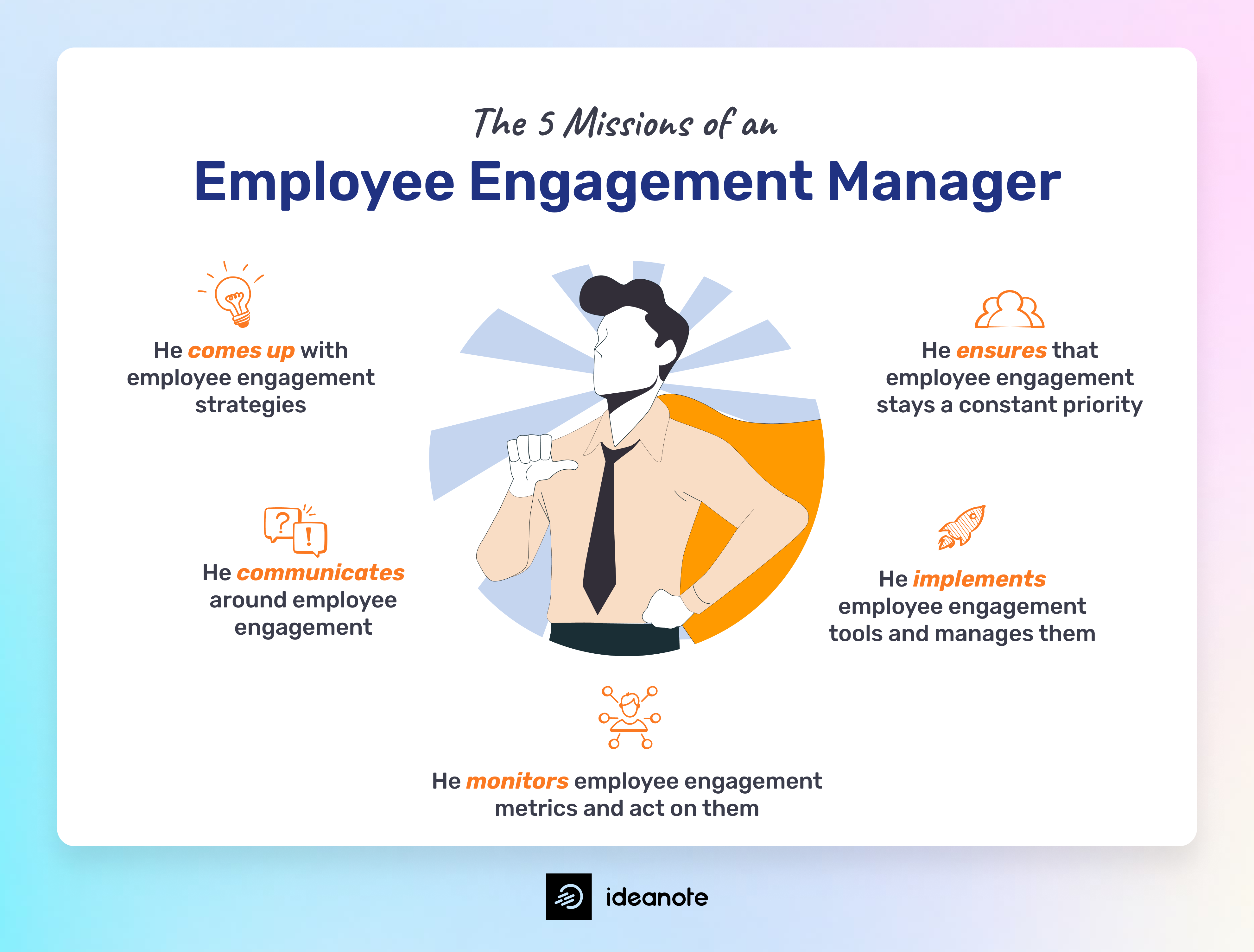
Employee Engagement Managers: What Do They Do?
What happens when your employees stop caring? It’s not an overnight switch—it’s a quiet unraveling, often hidden behind polite smiles and completed tasks. And yet, this silent shift can determine whether a company flourishes or flounders. In an era where attention spans are fractured and burnout looms large, understanding the psychology of engagement isn’t just corporate responsibility—it’s survival. Enter the employee engagement manager, the often-overlooked architect behind the kind of workplaces people actually want to stay in.
Your employees are the main building block of your company’s success. The more productive they are, the more work gets done, and thus, your operations become more efficient.
But in the age where our average attention span is constantly shrinking, how can you make sure that your employees’ productivity is at its peak?
The answer is by increasing your employees’ engagement in the work they do and the life of the company. That’s why many companies appoint an employee engagement manager - a professional responsible for creating a company culture where employees feel valued and highly motivated to give their best.
In this article, we’ll discuss how an employee engagement manager can help you increase employee engagement and productivity within the company.
What is an Employee Engagement Manager?
An employee engagement manager is a team leader responsible for implementing strategies to increase employee engagement. They focus on creating a positive and inclusive work environment where employees feel motivated, satisfied, and emotionally invested in the company’s success.
Without an employee engagement manager to monitor the employees’ performance, avoiding issues like dissatisfaction, internal conflicts, and workplace burnout may be challenging.
A survey from 2022 found that 43% of desk workers in the U.S. report feeling burned out. It also reports that the overall job satisfaction among executives in the U.S. has plummeted by 15% while their job-related stress and anxiety levels have increased by 40%.
An employee engagement manager can address these trends by ensuring employees feel heard and recognized for their achievements and promoting a healthy work-life balance.
Employee Engagement Manager Position
🎓Employee engagement manager level of degree: Bachelor’s Degree
🏃Best employee engagement training for managers: Bachelor’s Degree in Corporate Social Responsibility or Human Resource Management
💸Average employee engagement manager salary in the US: $84,656 per year
The 5 Missions of an Employee Engagement Manager
Although the role of an employee engagement manager may not immediately appear as central to the company’s success, it's crucial for the well-being and job satisfaction of your employees.
Employee engagement managers play a vital role in helping employees feel good about their work, be more productive, and stay with the company for longer, therefore reducing the turnover rate.
Here are the 5 main missions of an employee engagement director.

Come up with Employee Engagement Strategies
Employee engagement managers gather data through employee surveys and encourage open communication to assess the current level of engagement within the organization.
Based on their analysis, they identify trends and challenges that need addressing and develop and implement strategies to boost employee engagement, such as:
- Recognition and rewards systems,
- Career growth trainings,
- Wellness initiatives,
- Employee assistance programs (EPAs),
- Diversity and inclusion programs,
- Team-building activities.
Communicate around Employee Engagement
Communication in the workplace plays a vital role in employee engagement. In fact, the more frequent the communication between employees and managers, the higher their engagement.
Open communication leads to stronger employee-manager relationships and clarity in project-related tasks and responsibilities.
To encourage these conversations, an employee engagement manager will set up platforms and systems that enable employees to share their opinions and feedback.
Strategies like open-door policies, suggestion boxes, or surveys aim to provide employees with a chance to voice their concerns and desires in a psychologically safe environment.
Monitor Employee Engagement Metrics and Act on Them
Keeping employee engagement as high as possible for as long as possible requires constant monitoring, adjusting the existing strategies, and coming up with new ideas.
This is why the role of an employee engagement manager is so crucial, as monitoring the engagement KPIs, gathering data, and acting on it is a big part of their role.
For instance, an employee engagement manager might notice that employees are feeling stressed and burned out based on the data they’ve collected. To address this issue, they may collaborate with the HR team to introduce solutions like a stress management workshop or more flexible work schedules.
After these ideas are in place, it’s the manager’s job to keep an eye on how they’re performing and monitor the results.
Implement Employee Engagement Tools and Manage Them
Another mission of an employee engagement manager is to facilitate the engagement strategies and programs they came up with, which not only involves constant monitoring but also implementing the right tools and systems.
For instance, if one of the newly introduced engagement initiatives involves gathering ideas from employees, the employee engagement manager is responsible for setting up an idea management tool.
They must then present this tool to employees and provide training to demonstrate how to use it effectively. This way, they can ensure that everyone knows what to do and can participate in the initiative.
Employee Engagement Tools You Can Use
Ensure that Employee Engagement Stays a Constant Priority
Increasing employee engagement isn’t a one-time thing. It’s an ongoing process that becomes part of the company culture. Maintaining a high level of employee engagement requires constant monitoring, new ideas, and adjustments to the current strategies.
An employee engagement manager is responsible for prioritizing employee engagement, happiness, and well-being. They constantly develop new engagement strategies based on the trends they observe and the data they gather.
They also make sure that the programs and initiatives they suggested are being implemented properly and that everyone actively participates in them.
For example, if one of the initiatives was to set up an idea management process, then the employee engagement manager is responsible for overseeing the entire process, making sure that ideas get submitted, voted on, discussed, and implemented.
End Note
Recent trends show that employees are now paying more attention to their mental health and well-being at work. That’s why keeping your employees engaged and satisfied is crucial to your company’s success.
Without happy employees, you risk higher turnover and lower productivity. Hiring or appointing an employee engagement manager can help you create a happier and more engaged workforce.
Next up to Read:
Boost Employee Engagement with Ideanote Today




